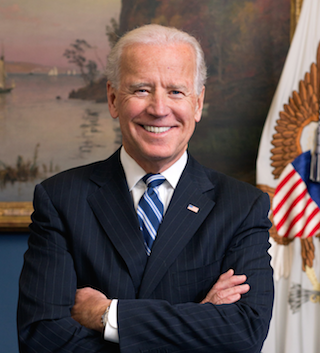GlaxoSmithKline
See the following -
3Rs For Innovating Novel Antibiotics: Sharing Resources, Risks, And Rewards
The stream of new antibiotics is struggling to keep up with emerging bacterial resistance. Anthony So and colleagues examine what can be done to increase innovation... Read More »
- Login to post comments
Biden Announces Major Open Initiatives At Cancer Moonshot Summit
 Today, the Cancer Moonshot is hosting a summit at Howard University, in Washington, D.C. as part of a national day of action that also includes more than 270 events in communities across the United States. Vice President Joe Biden will join over 350 researchers, oncologists and other care providers, data and technology experts, patients, families, and patient advocates, among others, will come together at Howard University. They will be joined by more than 6,000 individuals at events in all 50 states, Washington, D.C., Puerto Rico, and Guam. This is the first time a group this expansive and diverse will meet under a government charge is to double the rate of progress in our understanding, prevention, diagnosis, treatment, and care of cancer...
Today, the Cancer Moonshot is hosting a summit at Howard University, in Washington, D.C. as part of a national day of action that also includes more than 270 events in communities across the United States. Vice President Joe Biden will join over 350 researchers, oncologists and other care providers, data and technology experts, patients, families, and patient advocates, among others, will come together at Howard University. They will be joined by more than 6,000 individuals at events in all 50 states, Washington, D.C., Puerto Rico, and Guam. This is the first time a group this expansive and diverse will meet under a government charge is to double the rate of progress in our understanding, prevention, diagnosis, treatment, and care of cancer...
- Login to post comments
Digital health round-up: bioelectronics are closer than you think
 Towards the end of last year, Google’s life sciences division Verily and GlaxoSmithKline co-founded Galvani Bioelectronics to develop medicines that harness electrical signals in the body to treat chronic diseases like asthma, arthritis and even gastrointestinal diseases. At the time, the unveiling of Galvani felt like a new frontier in medicine and, though somewhat difficult to comprehend, something that could genuinely change the lives of millions of people worldwide...
Towards the end of last year, Google’s life sciences division Verily and GlaxoSmithKline co-founded Galvani Bioelectronics to develop medicines that harness electrical signals in the body to treat chronic diseases like asthma, arthritis and even gastrointestinal diseases. At the time, the unveiling of Galvani felt like a new frontier in medicine and, though somewhat difficult to comprehend, something that could genuinely change the lives of millions of people worldwide...
- Login to post comments
Eaten Alive: A Patients’ Perspective on De-Identification of Personal Health Information
 In 2018, the majority of people do not know that their PHI, like their EHR data, prescription data, insurance claims, and genetic data via direct-to-consumer (DTC) tests, are de-identified and sold for research and commercial purposes at massive profits. Medical health data trading is a multi-billion dollar industry. The process of de-identification supplies data that may be aggregated for a variety of analyses, such as basic scientific discoveries, policy & legal reviews, process refinement, pharmaceutical marketing, and other efforts. Data de-identification isn’t new but it is rampant. I’m gravely concerned about the free-for-all that is de-identification. You should be too.
In 2018, the majority of people do not know that their PHI, like their EHR data, prescription data, insurance claims, and genetic data via direct-to-consumer (DTC) tests, are de-identified and sold for research and commercial purposes at massive profits. Medical health data trading is a multi-billion dollar industry. The process of de-identification supplies data that may be aggregated for a variety of analyses, such as basic scientific discoveries, policy & legal reviews, process refinement, pharmaceutical marketing, and other efforts. Data de-identification isn’t new but it is rampant. I’m gravely concerned about the free-for-all that is de-identification. You should be too.
- Login to post comments
For UNC Scientists, Open Source is the Way Forward

Fibrodysplasia ossificans progressiva—more commonly called stone man's syndrome—is the result of a rare mutation, an anomaly in the way certain enzymes called kinases spur protein synthesis. Someone with stone man's syndrome has hyperactive kinases that catalyze more bone production than they should. The body's natural repair mechanisms malfunction, and they replace soft tissue with deposits of solid bone. Joints freeze. The body becomes a prison. But scientists know they can manipulate those kinases to combat the disease. And chemical biologists at the University of North Carolina are leading an open source effort to unlock the secrets of kinase activity—secrets they say could pioneer a new generation of drug discovery...
- Login to post comments
How Google Plans to Reinvent Healthcare
Glucose-monitoring contact lenses for diabetics, wrist computers that read diagnostic nanoparticles injected in the blood stream, implantable devices that modify electrical signals that pass along nerves, medication robots, human augmentation, human brain simulation -- the list goes on. That's not an inventory of improbable CGI effects from the latest sci-fi movie, it's a list of initiatives being tackled by Alphabet's Google Life Sciences research unit, recently rebranded Verily...
- Login to post comments
Low-Carb on Trial (Galileo Had It Easy)
A recent exposé in the New York Times[1] revealed massive and pervasive fraud and collusion between the sugar industry and certain medical authorities in the 1960’s designed to erroneously promote saturated fat as the culprit behind heart disease. Effectively diverting attention from the real source of the problem (the increasing consumption of dietary sugar), the food industry conspired with key authorities within the medical establishment to serve their own best interests at the expense of public health. Historic documents showed that they were intentionally concealing the fact that sugar, instead of fat, was knowingly to blame...
- Login to post comments
Many Antidepressant Studies Found Tainted by Pharma Company Influence
The latest study, published in the Journal of Clinical Epidemiology, which evaluated 185 meta-analyses, found that one third of them were written by pharma industry employees. “We knew that the industry would fund studies to promote its products, but it’s very different to fund meta-analyses,” which “have traditionally been a bulwark of evidence-based medicine,” says John Ioannidis, an epidemiologist at Stanford University School of Medicine and co-author of the study. “It’s really amazing that there is such a massive influx of influence in this field.”
- Login to post comments
Open Source Malaria Research Paves Way for Inexpensive Medicines
 A real-time drug discovery project involving some 50 researchers in nine countries has shown open source malaria research works - providing a potential alternative for medicines similar to the way in which open source products compete with proprietary products in software. Malaria is one of the leading causes of mortality in developing countries – last year killing more than 400,000 people. Researchers worldwide have found the solution for drug discovery could lie in open, “crowd-sourced” science...
A real-time drug discovery project involving some 50 researchers in nine countries has shown open source malaria research works - providing a potential alternative for medicines similar to the way in which open source products compete with proprietary products in software. Malaria is one of the leading causes of mortality in developing countries – last year killing more than 400,000 people. Researchers worldwide have found the solution for drug discovery could lie in open, “crowd-sourced” science...
- Login to post comments
Open-access R&D for Drug Industry
LONDON: Drug companies are learning how to share. In a bid to save both time and money, some of the industry’s biggest names are experimenting with new ways to pool early-stage research, effectively taking a leaf out of the “open-source” manual that gave the world Linux software. Read More »
- Login to post comments
Special Report: When the Drugs Don't Work
Welcome to a world where the drugs don't work...for decades scientists have managed to develop new medicines to stay at least one step ahead of an ever-mutating enemy.
Now, though, we may be running out of road. MRSA alone is estimated to kill around 19,000 people every year in the United States -- far more than HIV and AIDS -- and a similar number in Europe. Other drug-resistant superbugs are spreading. Cases of often fatal "extensively drug resistant" tuberculosis have mushroomed over the past few years. A new wave of "super superbugs" with a mutation called NDM 1, which first emerged in India, has now turned up all over the world, from Britain to New Zealand.
- Login to post comments
The Grim Propect of Antibiotic Resistance
 When people hear about antibiotic resistance creating “superbugs”, they tend to think of new diseases and pandemics spreading out of control. The real threat is less flamboyant, but still serious: existing problems getting worse, sometimes dramatically. Infections acquired in hospital are a prime example. They are already a problem, but with more antibiotic resistance they could become a much worse one. Elective surgery, such as hip replacements, now routine, would come to carry what might be seen as unacceptable risk. So might Caesarean sections. The risks of procedures which suppress the immune system, such as organ transplants and cancer chemotherapies, would increase...
When people hear about antibiotic resistance creating “superbugs”, they tend to think of new diseases and pandemics spreading out of control. The real threat is less flamboyant, but still serious: existing problems getting worse, sometimes dramatically. Infections acquired in hospital are a prime example. They are already a problem, but with more antibiotic resistance they could become a much worse one. Elective surgery, such as hip replacements, now routine, would come to carry what might be seen as unacceptable risk. So might Caesarean sections. The risks of procedures which suppress the immune system, such as organ transplants and cancer chemotherapies, would increase...
- Login to post comments
Universal Language: The Pistoia Alliance Takes on Indescribable Biology
Best Practices WinnerThe Pistoia Alliance has previously sponsored new methods for querying databases and the scientific literature, and a more effective algorithm for compressing and sharing genetic sequencing data. Over the past year, another Pistoia project, HELM, has entered the public domain after gradual development by an assortment of Alliance members. An open source language and set of editing tools for working with large biomolecules, HELM has already become a foundational part of research in at least three large pharmaceutical companies. Read More »
- Login to post comments
What Clinical Trial Results? Now You Can See Who Isn’t Sharing Their Findings
The results for nearly half of all clinical trials conducted by big drug makers during the last decade have not been published, and one company — Ranbaxy Laboratories — has not published findings for any of the nearly three dozen trials conducted in the past 10 years, according to a new online tool. The tool was launched Thursday by AllTrials, a consortium of researchers and medical journals that has been pushing the pharmaceutical industry to do a better job of disclosing clinical trial data...
- Login to post comments